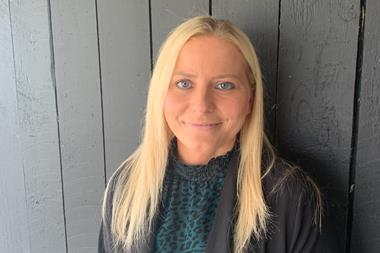John Mitchell, partner at law firm Blake Morgan, looks at the risks associated with liquid waste
The recent introduction of new sentencing guidelines has resulted in high-profile food manufacturers paying out six-figure sums in fines or payments to charities to avoid prosecution, because fines for breaches of water and sewer pollution laws are unlimited.
But this is nothing new. River and groundwater pollution cases have been a part of my caseload for the past 25 years.
In simple terms, the law says you are not allowed to “cause or knowingly permit a water discharge activity” – pollution of a watercourse – without an environmental permit from the Environment Agency (regulation 12(1)(b) of the Environmental Permitting Regulations 2016). This offence prohibits the discharge of poisonous, noxious or polluting matter, solid waste matter or trade or sewage waste into inland freshwater, coastal or territorial waters.
For a substance to be polluting it does not need to be harmful. The courts have said it covers anything that makes water tainted, physically impure or dirty. It also includes substances which in themselves are not a pollutant, but can have a harmful effect in a river, such as milk.
Ignorance of the polluting event having taken place is no defence – it is a strict liability offence, meaning a company or person ultimately responsible can be held liable, even if they didn’t know about or intend the discharge.
I always advise businesses that ask me how to avoid such an event to know where their drains go. That way you will avoid the embarrassing situation a client of mine found itself in years ago, when a container was punctured in their yard and hair shampoo was quietly hosed down the drains by the night shift. Unfortunately, the yard drains were connected to the nearby river and the owners of a five-star hotel three miles downstream were not amused the following morning when the weir above their breakfast terrace started foaming bubbles over their guests. Nor was the court.
It’s also good practice to check regularly that your hardstanding and bunded areas for oil and waste storage have no cracks in them that would render them permeable to pollutants.
Another important piece of legislation is the Water Industry Act 1991. Section 118 requires a business to have consent from the sewerage undertaker – the firm that provides sewerage services to the premises – for the discharge of any trade effluent into drains connected to the public sewer. Trade effluent is anything that is not domestic sewage (toilet bath or hand wash waste) or uncontaminated surface water or roof drainage. It includes any waste water from a production process or from washing down or cooling activities. Even small discharges of a few litres a day may require sewerage undertaker consent.
A separate but related issue is the discharge of fats, oils and grease (FOG) in sinks and drains, covered by section 111 of the Act. ‘Fatbergs’ clogging sewers has brought this issue to the fore. Section 111 prohibits anything being put into a drain connecting with a sewer that might “interfere with the free flow of its contents”, which so obviously includes FOG that sewerage undertakers frequently prosecute where they catch offenders.
Best management practice issued by Water UK recommends the use of grease traps or interceptors in drainpipes to separate the FOG material from the rest of the wastewater. The retained grease can then be collected by a licensed oil collector.
Failure to manage waste discharge effectively can also increase operational costs. The negative publicity associated with a breach can be very damaging for a business.
It is vital that businesses have incident management procedures in place to be implemented in the event of a spillage of chemicals, product or trade waste, and that all relevant employees are aware of the plan. If such an emergency occurs, the business must do everything possible to avoid the spilled material entering any drains on-site, and contact the relevant regulators at the first available opportunity.
Preparation, awareness and strict compliance procedures could be the difference between a business that thrives and one that ends up going down the drain.





























No comments yet